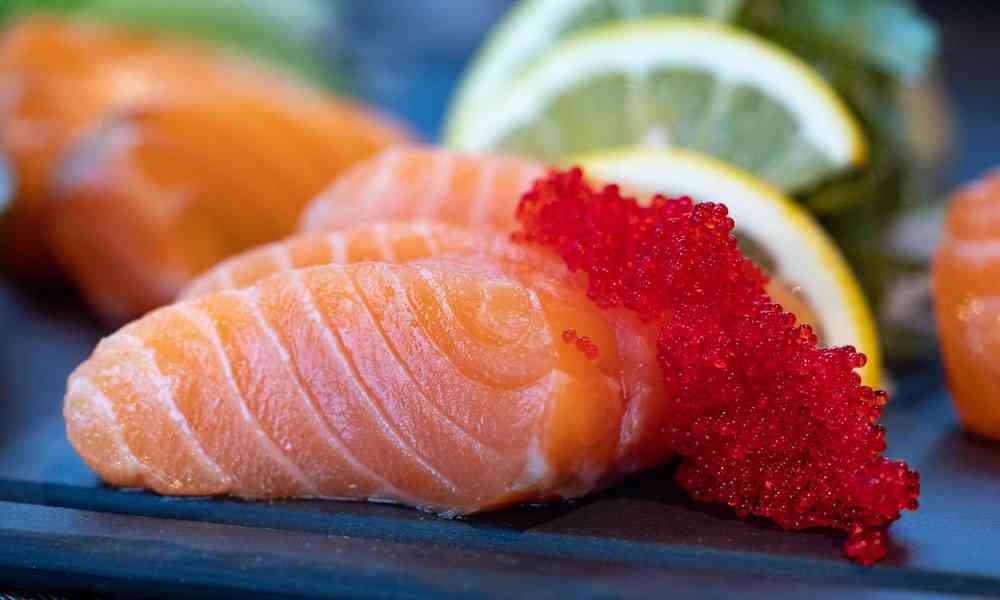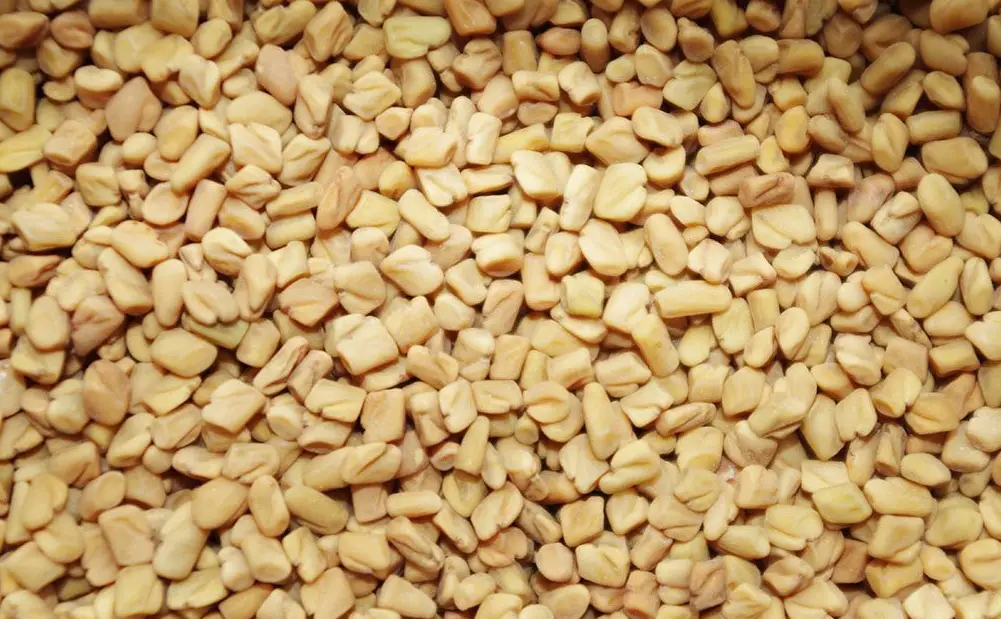
21 Foods that Increase Breast Milk Supply
If you are looking for foods that increase breast milk supply, it means you are worried that you are not producing enough. You are most likely worried that your baby is not getting enough milk he deserves. Or you are worried that you are not well nourished for your body to produce enough breast milk.
You are worried and stressed out trying to understand what to eat and what not to eat to increase the milk supply. Mothers want to know they are doing their best for the health of their babies. Certain foods are known to induce lactation and they are called Galactagogues. Below are some of the foods we found useful for you:
Foods that Increase Breast Milk Supply
1. Fenugreek
It is a natural herb that can be used to increase lactation. Fenugreek is known to be an excellent galactagogue for women trying to increase their milk supply. They also have phytoestrogens that are essential in boosting lactation.
To benefit from this herb, drink it before sleeping and it will not only increase your milk supply but also the quality of your milk.

2. Garlic
Apart from being nutritious and a healthy spice we add to our meals, it is also a galactagogue that helps women boost their milk supply. It has been used as a natural lactation aid and for other health benefits.
Furthermore, garlic may alter the taste of milk which may trigger colic in babies. You should try to notice if your baby reacts after you consume garlic. You will know if your baby is allergic or not by doing so.

3. Papaya
Papaya contains lactogenic effects and its leaves can increase breast milk supply. It is a fruit that can be eaten as it is, added to foods when cooking or in soups. The fruit contains phytochemicals and enzymes responsible for breast milk supply. It can improve digestion, enrich you and your baby with vitamins and minerals.

4. Carrots
Carrot is a rich vegetable that provides nutrients. It increases breast milk due to the presence of phytoestrogens that have lactogenic effects in carrots. Carrots are also rich in Vitamin A and potassium, they help to improve the quality of the milk you produce. It can also help you to lose weight as well. You can eat carrots raw, in salads, juices, foods, dessert as it is a delicious orange rich vegetable.

5. Basil
Basil leaves have a soothing effect and are rich in antioxidants. It is common in some countries for using basil leaves to increase breast milk supply since it is a medical herb. In addition, it is added to tea for a calming effect. It is also added to foods when cooking to boost milk supply in nursing mothers.

6. Sesame Seeds (Egusi)
It is rich in calcium, protein, fibre, essential nutrients. Egusi has quercetin a phytochemical that increases prolactin secretion and breast milk supply. You can add it to your salad as toppings, in soups (like Egusi Soup), pasta to increase breast milk supply in lactating mothers.

7. Sweet Potato
It is rich food that has fibre, micronutrients, and has phytochemicals that are responsible for promoting your health. This food is known as a superfood that increases prolactin and breast milk supply. In addition, sweet potatoes are rich in potassium, energy, vitamins, minerals that are required by your body. It can be eaten boiled, fried, in porridge, and salads.

8. Milk
It is a nutritious liquid that has more water content, no fibre, fat, proteins, sugar, carbs, and calories. It is also a rich source of protein. Casein present in milk can lower blood pressure. And it also contains all the best foods that increase milk supply. Apart from quenching your thirst, it is highly nutritious and important to take more liquid like water and milk to increase your milk supply. Try to avoid liquids that will dehydrate you when nursing or eat as a snack.

9. Moringa (Zogale)
Zogale is beneficial in lowering blood sugar levels, weight loss, improving digestion, improving the cardiovascular system, and much more. It is widely used in Africa and Asia. The plant is rich in amino acids, antioxidants, carotenoids, calcium, and iron and can help in increasing breast milk supply when used as a lactating diet. It can be eaten as salads, in soups, foods, and juices to increase breast milk supply.

10. Tofu (Awara)
Awara is a delicious food that can be eaten fried with pepper or eaten after being boiled. It is widely available in Northern Nigeria sold by street vendors. It is made from soybeans and is rich in protein micronutrients. This snack contains phytoestrogen and it can increase breast milk supply. It can also be eaten in soups and salads too.

11. Watermelon
Watermelon is a nutritious fruit that is high in water content. It contains potassium, vitamin C, A, B6, and gluthionine. It also contains fibre and fructose. The water content helps to keep your breast milk flowing when feeding your baby as it has a lactogenic effect. You can eat it as it is or in juices, smoothies, or deserts.

12. Lentils
They are rich in proteins, fibre, magnesium, and folate. It can boost your breast milk supply, lower your blood sugar level and digestion. You can add them to soups, stews, or snacks.

13. Green Tea
Green tea is rich in antioxidants and nutrients, vitamin B, folate and manganese, and magnesium. Taking green tea can help you, relax your body. When taken in moderation and also boost milk supply the caffeine content in green tea will not affect your baby. If you take too much instead of increasing your milk supply. It can reduce it so always drinks it a few hours after meals for the best effect.

14. Barley
It contains beta-glucan which is responsible for increasing prolactin levels in your body. It is also rich in fibre. The beta-glucan is the sole reason why this polysaccharide is considered as food that increases breast milk supply. You can add it to rice, salads, stews, and vegetable meals to boost your breast milk production.

15. Oats
This food is rich in iron fibre, magnesium, zinc and has a great nutritional profile. Women fall back to oatmeals to increase their milk supply. Since it is rich in iron and low mineral that helps in increasing their milk supply. It can relieve stress, improve digestion and relieve stress, improve digestion. As a nursing mother, you get the nutrients required in a short period of time since it takes little time to prepare. The way it increases breast milk supply is by increasing the oxytocin hormone levels in your body. You can eat it as a meal, in cakes, porridge, cookies or even on bread.

16. Fennel
It is a leafy vegetable that is a galactagogue and has estrogen that helps increase your breast milk supply. It has a lactogenic effect too and contains phytoestrogens. Fennel is a lactation cookie for most women. You can eat it raw or cooked since it is a vegetable. You can add it to soups, stews, cookies, or even teas.

17. Almonds
Almonds are sweet, healthy, and packed with proteins and calcium. It is a good example of foods that increase breast milk supply because of its estrogenic activity. It also contains vitamins and minerals. Let us not forget, it is rich in vitamin A, vitamin E, and omega-3 fatty acids. Drinking almond milk increases the sweetness, creaminess, and quality of your breast milk as a nursing mother. Almonds can be eaten like nuts, in smoothies, juices, milk can be extracted from it, almond butter, and almond flour too. And it can also be added to food.

18. Flaxseed
This also contains phytoestrogens which are needed in boosting breast milk supply. Flaxseed contains protein fibre and omega-3 fatty acids (especially flaxseed oil). Flaxseed also has a lot of benefits from reducing the risk of cancers, inflammation, cardiovascular disease, blood glucose control, and weight loss. You can take it roasted, in soups, stews, salad dressing, and in warm water.

19. Water
Water is life! Water is very essential to humans. More than half of your body and the earth you live in is water. Breast milk has more water content than nutrients. The best and easiest way to increase milk supply is by taking more water to keep you hydrated and replace lost fluids. Take more water for a steady milk supply.

20. Salmon
This food is important during pregnancy and also during your lactation. Salmon is rich in protein, vitamins, and omega-3-fatty acids. It is low in mercury, boosts milk supply improves your immunity, and provides you with the required nutrients you and your baby need. You can eat it fried in soups, stew, and foods.

21. Green Vegetables
These vegetables add colour to foods and are packed with nutrients mostly calcium. They are rich in phytoestrogens too, which is important in boosting breast milk supply. They also contain fibre and micronutrients. You can add them to your foods, stew, soups, or salads.

Conclusion
There are certain foods that increase breast milk supply and help your body boost milk production and constant flow of breast milk. They are rich in phytoestrogens, recognised as galactogogues, and are rich in essential nutrients.
What are the foods that boost your milk supply when you were nursing? Kindly leave your comments below to let us know what your go-to foods were.

